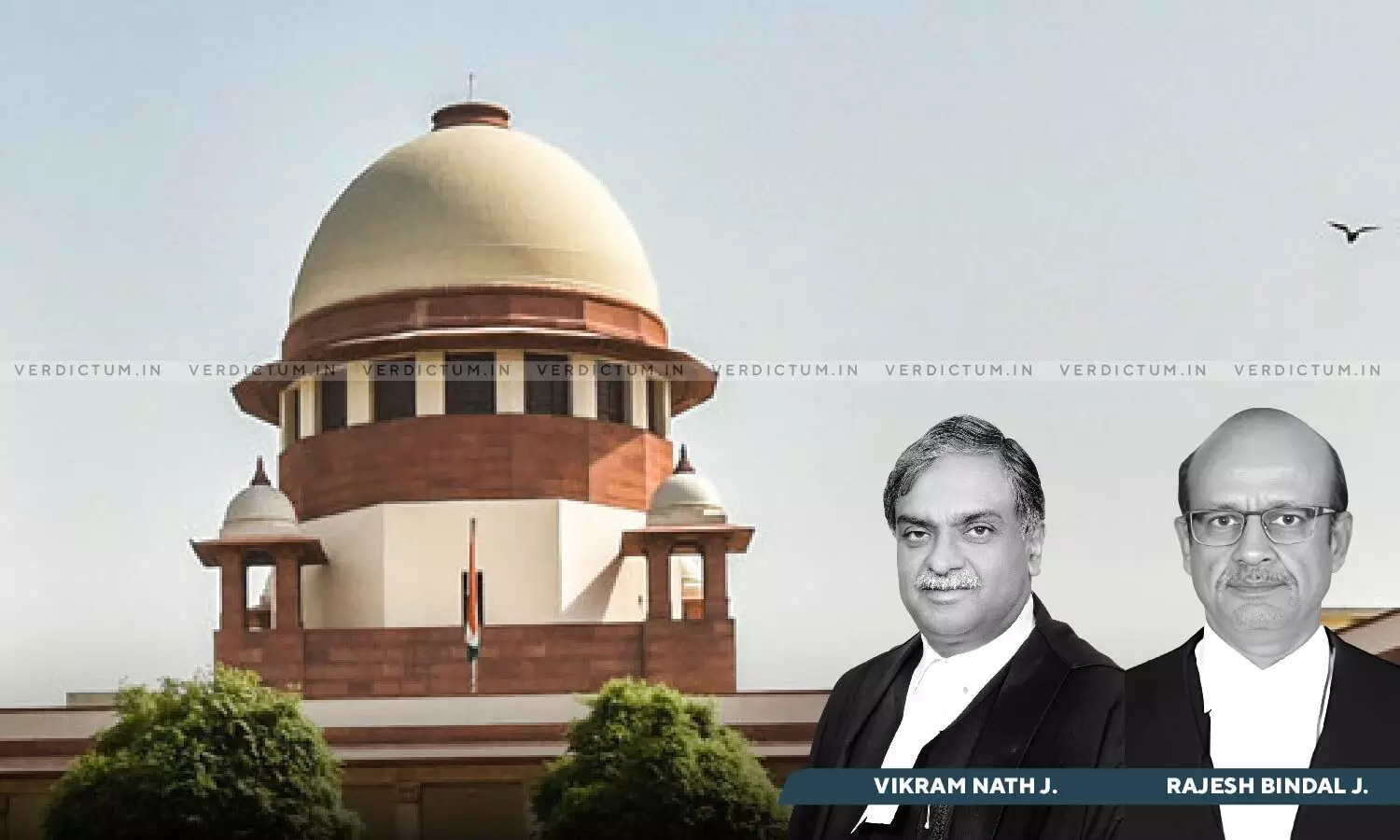
Parties Need To Be More Careful While Filing Pleadings: SC Warns Of Disastrous Consequences For Errors
 |
|The Supreme Court observed that parties need to be more careful while filing the pleadings in the Court as any error in the same may be disastrous for any of the parties.
The Court remarked that when five different suits were filed by different persons in a property dispute, then “while filing the documents with the paper book filed in this Court, it was incumbent upon the appellants to place on record correct copies of the judgments of the Trial Court as well as the First Appellate Court for each of the case.”
A civil suit was filed to address a dispute over the ownership and possession of a piece of land. The respondents sought a permanent injunction and ownership of the land, claiming to have purchased it from the Gram Panchayat in 1959. The appellants, however, argued that the land was government property earmarked for grazing cattle. The Trial Court dismissed the suit, but the First Appellate Court reversed the decision, decreeing the suit in favour of the respondents. The High Court upheld the appellate court's decision, stating that evidence supported the respondents' claim of ownership and entitlement to permanent injunction. The High Court also held that the suit for injunction alone was maintainable without a declaration.
Justice Vikram Nath and Justice Rajesh Bindal observed, "We can only observe that the parties need to be more careful while filing the pleadings in this Court and so the Registry of this Court as any error therein may be disastrous for any of the parties."
Sr. Advocate S. Niranjan Reddy represented the appellants, while Sr. Advocates V.K. Shukla and S.K. Upadhyay appeared for the respondents.
The Supreme Court remarked that there was no revenue record that the respondents produced to show that the land in question was ever mutated in their favour. Therefore, if the land was reserved for grazing castles, then it could not have been leased out by the Gram Panchayat.
While the respondents had argued for the presumption of truth under Section 90 of the Indian Evidence Act due to the document's age being over 30 years, the Court found the evidence to not be sufficient. The document lacked the signatures of the purported signatories and there was a failure to summon records from the Gram Panchayat for verification.
The Court concluded that the respondents had failed to prove their title to the land and that the judgment of the High Court suffered from patent illegality Consequently, the judgment and decree of the First Appellate Court as well as the High Court were set aside and the order of the Trial Court was restored.
Accordingly, the Supreme Court allowed the appeals.
Cause Title: The Tehsildar, Urban Improvement Trust & Anr. v. Ganga Bai Menariya (Dead) & Ors. (Neutral Citation: 2024 INSC 121)
Appearance:
Appellants: Sr. Advocate S. Niranjan Reddy; AOR Aruna Gupta; Advocates C. Mohan Rao, Ramesh Allanki and Syed Ahmad Naqvi
Respondents: Sr. Advocates V.K. Shukla and S.K.Upadhyay; AOR K. Paari Vendhan, Karan Singh Bhati and T. Mahipal; Advocates Rishabh Sancheti, Padma Priya, Vivek Gupta, Mrinmay Bhattmewara, Hitesh Kumar Sharma and S.K. Rajora